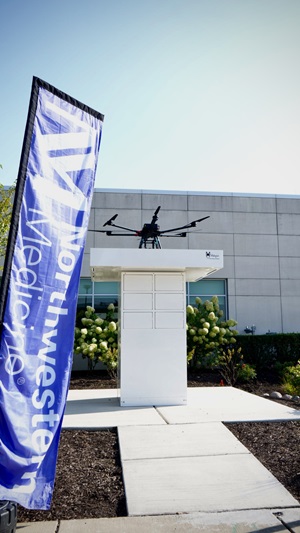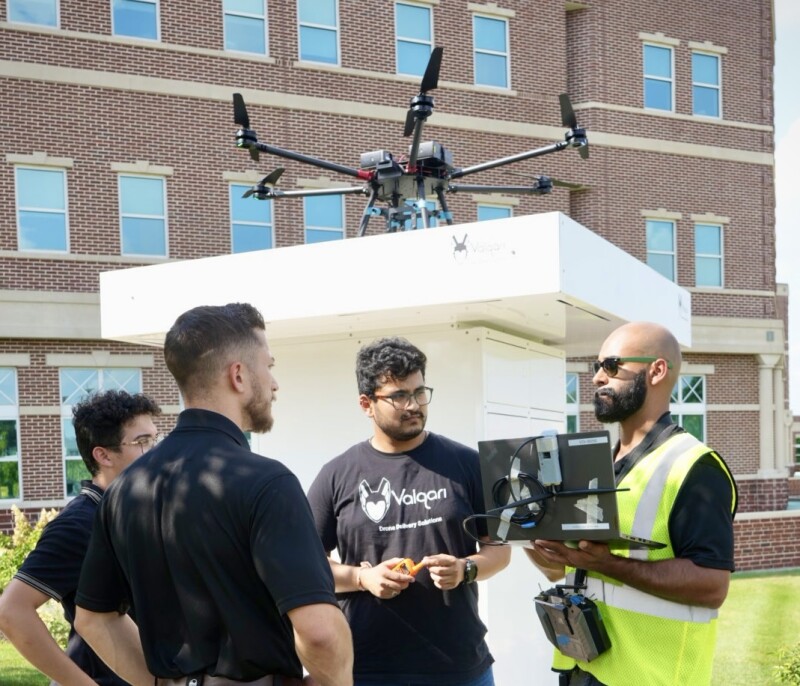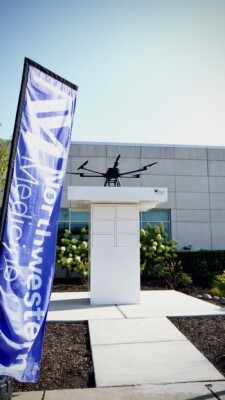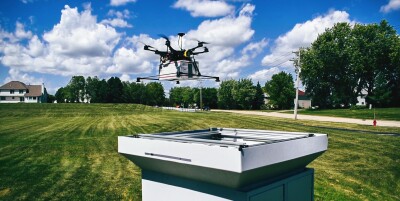Perhaps the most successful and widely praised adoption of uncrewed technology has been in the medical delivery space. All around the world, people have benefited from drone flights that bring blood, medicine, and other critical supplies to hard-to-reach regions, areas devastated by disasters—and just regular communities in need of timely, accurate medical services.
Based on recent successes, many hospitals and medical groups have been developing uncrewed systems for medical delivery. One of the latest is Northwestern Medicine, an 11-hospital system with some 40,000 employees based in Illinois.
Working with Valqari, an Illinois company focused on drone delivery, Northwestern Medicine has begun a pilot program to test the feasibility of using drones to deliver specimens and medical supplies on the campus of Northwestern Medicine Delnor Hospital. The project began this past summer with two landing stations and a drone on standby, ready to fly supplies when needed.
 Valqari CEO Ryan Walsh told Commercial UAV News that the pilot project has drastically reduced the time it takes to get needed supplies to patients. “In the past, a nurse who needed supplies on demand would have to leave the cancer center, walk to the main hospital, get the relevant supply from lab or whatever else was needed, and then come back,” he said. “That could take a half an hour out of a nurse’s day, but with the drone, we can do it in about four minutes.”
Valqari CEO Ryan Walsh told Commercial UAV News that the pilot project has drastically reduced the time it takes to get needed supplies to patients. “In the past, a nurse who needed supplies on demand would have to leave the cancer center, walk to the main hospital, get the relevant supply from lab or whatever else was needed, and then come back,” he said. “That could take a half an hour out of a nurse’s day, but with the drone, we can do it in about four minutes.”
From order to delivery, the process is fast and simple. When the clinical team needs to make a delivery, Walsh explained “they order it on a tablet, and then the lab at the main hospital boxes it up, the Valqari team sends it to one of our landing stations, and we just fly it right over. That’s it.”
Central to implementing the delivery was assuring staff and patients that the drones are in compliance with necessary regulations and are just being used to deliver supplies. “There are no cameras, and nobody's doing facial recognition,” Walsh stated. He also noted that drone operators do not have access to patient information at any time during the delivery process.
According to Sylvester Dazzo, Vice President of Administration at Northwestern Medicine, the project has been extremely successful, and hospital staff have been impressed by how well it’s worked. “We've done over 250 flights, with at least 65 of those flights actually carrying samples, blood products, or supplies,” he reported. “We’ve had a 100% success rate, and our staff are just amazed at how it is truly helping to deliver samples and blood products back and forth. It's been a bit of a hit!”
Walsh also noted that many Northwestern Medicine staff have expressed enthusiasm for the project. “People come up to us and ask questions, and they tell us, ‘This is amazing, we love this,’” he reported. “It’s exciting to see.”
According to Dazzo, support from Northwestern Medicine staff, along with measurable results from the pilot, may lead to future expansion throughout the hospital system. “The pilot project will end about the end of November 2024,” Dazzo said. “Then, we'll take the data that we collected and analyze it. We really want to make sure that it has made a positive impact on the patient and their treatment. If that proves positive, we plan to then expand out even further into the suburbs and at some of our more rural sites.”















Comments